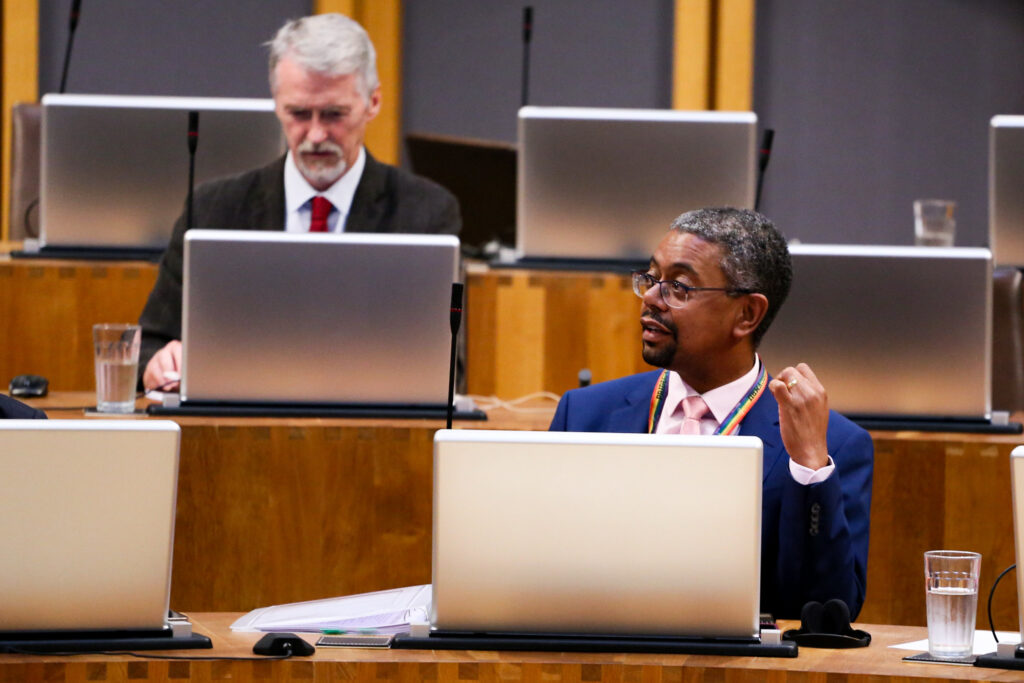Joseph Carter says that instead of an elected Mayor for Cardiff we should consider a Mayor for the City Region.
There has been a lot of debate in the media about the pros and cons of an elected Mayor for Cardiff and the ongoing collection of signatures to call a local referendum on the issue. I have considered the arguments for and against, and have come to the conclusion that we need to think bigger in our aspiration – not a Mayor for Cardiff, but an elected Mayor for the Cardiff City region.
One of the leading ideas behind the supporters of an elected Mayor is that it will give Cardiff strategic leadership and put us on the world stage. The example of London is frequently cited and the success of the Mayor of putting a spotlight on the city nationally and internationally. This is an appealing idea, but any council leader can provide leadership and strategic vision. Cardiff and South Glamorgan have frequently had leaders with a vision and the power to push that agenda through the council chamber (an example being the recent tributes to Lord Jack Brooks). Opposition councillors have held them to account, but their vision and command over their groups has led to history remembering them as strong leaders. The current appeal back to a time of strong leaders seems to have more to do with the current leadership of Labour in Cardiff following the election of Phil Bale in 2014 and the departure of experienced Labour cabinet members.
An elected Mayor of Cardiff or indeed of any other Welsh council would still be constrained by most of the limitations of a council leader. Whilst they would have a direct mandate to govern for 4-5 years and could appoint their own cabinets, they would still have to work with councillors to pass the budget and win important votes, and they would only have the powers that other councils have. They would command a higher salary than a council leader and potentially be further away from the electorate, than a council leader who still needs to represent a ward.
The focus on London is interesting as the Greater London Authority, including the Assembly and the Mayor, was formed in recognition of a need to bring together different local authorities and have someone speak for London. The London borough councils remain with similar powers to Welsh local authorities. The London Mayor has taken charge of transport, economic development and policing. Boris Johnson and former Mayor Ken Livingstone succeeded in linking the Mayor to the City’s brand and investors from across the world knew that they only had to approach the Mayor, rather than picking an individual borough council to work with.
Like London, the council’s of South East Wales need strategic leadership. The City Deal agreed with the U.K. and Welsh Government will see £1.2 billion invested in the 10 councils (Cardiff, Vale of Glamorgan, RCT, Torfaen, Caerphilly, Newport, Merthyr Tydfil, Blaenau Gwent, Bridgend and Monmouthshire) to fund the South Wales Metro and other infrastructure improvements. It will stimulate economic growth, with a suggestion that £5 billion could be invested in the region by the private sector creating jobs. There will be a regional transport authority and the councils together will have additional powers to vary business rates.
Where the city region plans lack detail is on the subject leadership. At present there is no singular person to lead the region, chair the transport authority and to be accountable if problems start to emerge. The leaders of the 10 local councils are all jointly responsible and the initial proposals on leadership and governance of the region are light on detail. A great deal of work has clearly gone on behind the scenes to calculate how much money is needed and how it could be spent, but very little thought as to how they will make sure that commitments are honoured and that the money is spent. Council leaders have strong personalities, so the prospect of 10 working together without difficulties is hard to imagine.
In England the model being pursued is around elected regional Mayors, who will chair the group of council leaders, but derive their authority from the people. Greater Manchester is perhaps the area most advanced in its development. Manchester, like Cardiff, acts as the economic engine of the area, and has kept its council leader and cabinet system, yet the region will be led by a directly elected Mayor. This is a model we should pursue here.
A directly elected Mayor would offer the leadership and vision needed to make the City Region plan a success. He or she would be the first point of contact for investors attracted by the City Deal and have the time to put the region on the map in a way that a council leader chairing the group wouldn’t have time to do. With the prospect of bringing £5 billion of private sector investment the role would pay for itself quickly, but the consequences of the role not being created could be a power vacuum, uncertainty and the private sector investment being lower than expected.
I would urge all parties to consider the benefits of an elected mayor for the city region and introduce legislation to create such a role. Whilst the benefits of an elected Mayor for Cardiff are difficult to quantify, the purpose and economic benefits of an elected Mayor for the City Region are clear. We simply can’t afford to not have one.






Comments are closed.